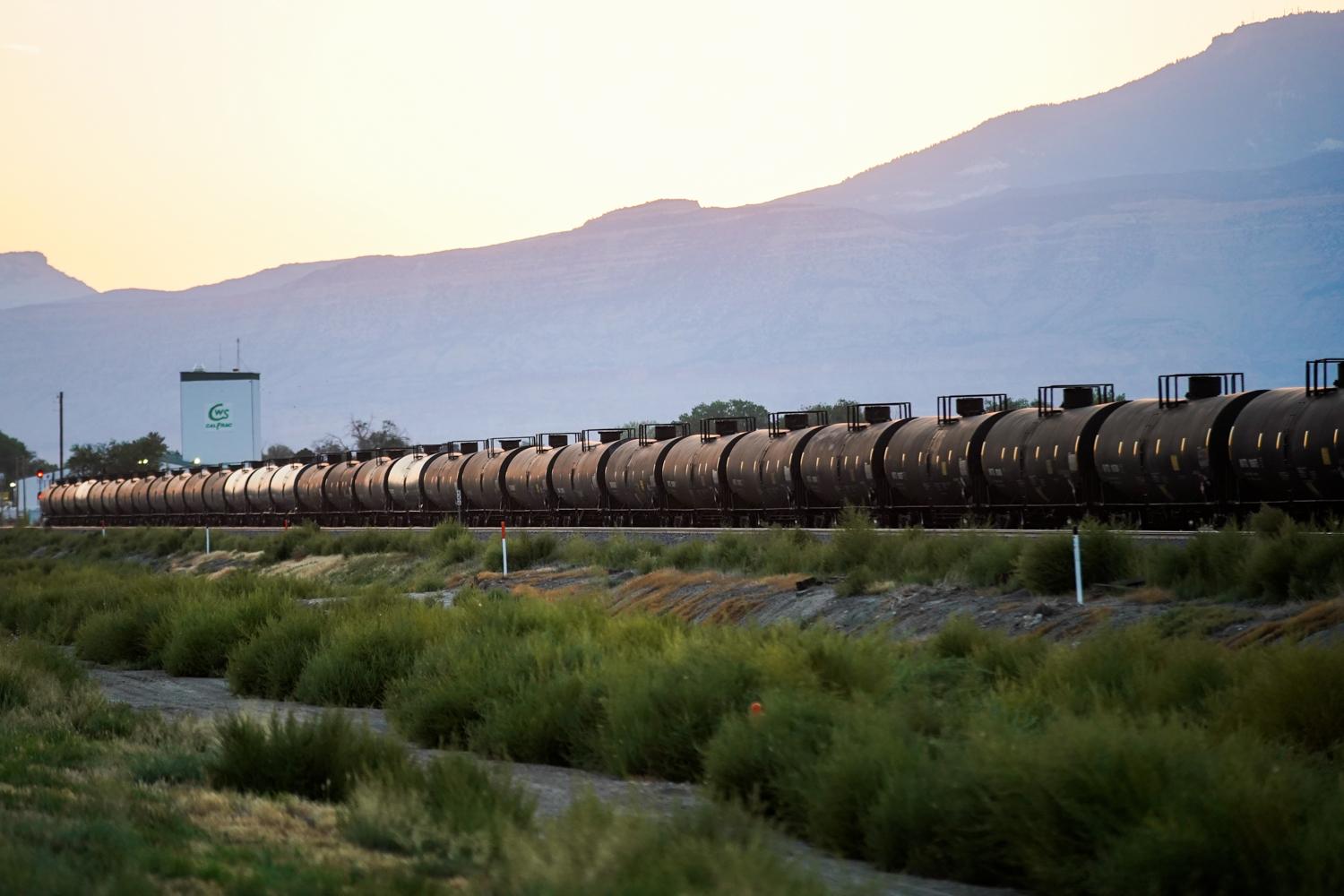
The Associated Press contributed to this story
The Supreme Court backed a multibillion-dollar oil railroad expansion in Utah on Thursday, endorsing a limited interpretation of a key environmental law.
The unanimous decision comes after an appeal to the high court from backers of the project, which is aimed at quadrupling oil production in the remote area of sandstone and sagebrush. The backers said limiting the scope of environmental reviews under the National Environmental Policy Act would speed up development.
The case centers on the Uinta Basin Railway, a proposed 88-mile expansion that would connect oil and gas producers to the broader rail network, allowing them to access larger markets.
The proposed line would allow several trains carrying millions of gallons of crude oil to travel to refineries in the Gulf each day, according to an environmental impact statement. Along the way, those trains would hug the Colorado River for miles through the Western Slope.
Project proponents — which include Utah county governments and the Ute Indian Tribe of the Uinta and Ouray Reservation — say the train project will bring an economic boom to the region by allowing companies to ship more oil and command higher prices in distant refineries.
“This decision affirms the years of work and collaboration that have gone into making the Uinta Basin Railway a reality,” said Keith Heaton, Director of the Seven County Infrastructure Coalition, the project’s public partner, in a statement.
But the project’s opponents — including Eagle County, much of Colorado’s congressional delegation, and environmental groups — say an oil spill in the Colorado River watershed would be catastrophic. They had urged federal regulators on the Surface Transportation Board to consider the broader environmental effects of burning fossil fuels when considering new development.
In August 2023, the U.S. Court of Appeals for the D.C. Circuit pulled the train’s emergency brake. Judge Robert Wilkins ruled that the board did not fully weigh the project’s environmental risks, including ones to the Colorado River, against the project’s benefits.
With their ruling, the Justices reversed that decision and restored a critical permit from regulators. However, the project could still face additional legal and regulatory hurdles within Colorado.
Jonathan Godes, a former city councilmember in Glenwood Springs, which submitted a brief opposing the project, said he was disappointed in the Court’s decision.
“It robs communities of their voice and their ability to participate, especially when the impacts are going to be so felt in those downstream communities,” Godes said. “To not contemplate that I think is a huge miss from the Supreme Court and this administration.”
NEPA is a bedrock environmental law that requires federal agencies to “take a hard look” at environmental impacts before greenlighting large infrastructure projects, like mines, solar farms and transmission lines. But, the law does not mandate an agency to do anything about the impacts it finds — the government can prioritize economic benefits instead.
The court’s ruling means that agencies that approve projects like pipelines, railways and dams are not required to consider the faraway, ripple effects of those projects – like increased fossil fuel emissions – moving forward.
Environmental groups who opposed the railway said the ruling would toss aside environmental concerns in future projects.
“The Trump Administration will treat this decision as an invitation to ignore environmental concerns as it tries to promote fossil fuels, kill off renewable energy, and destroy sensible pollution regulations,” said Sam Sankar, a vice president at the non-profit environmental law firm EarthJustice, in a statement.
Editor's Note: An earlier version of this story misspelled Jonathan Godes' name. It has been corrected.
- Today, US Supreme Court will hear Uinta oil train case that could limit bedrock environmental law
- Next stop for ‘waxy crude’ oil train: the U.S. Supreme Court
- Forest Service withdraws permit for Uinta rail project that would send crude oil through Colorado
- Federal judge pauses Uinta Basin Railway project that would ship millions of gallons of oil through Colorado
- Colorado leaders are rallying against a railway project that would carry crude oil along the Colorado River









